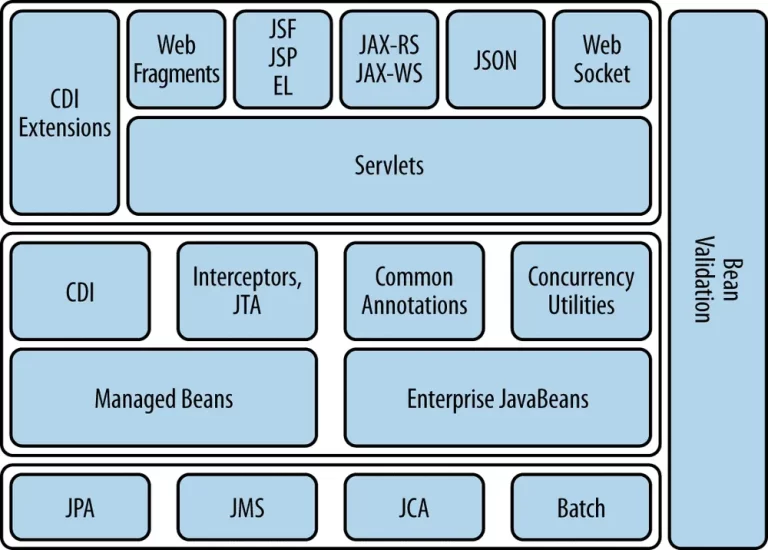What is Java Enterprise Edition(JEE)?
Formerly known as Java Enterprise Edition, it is a collection of technologies and APIs for building and deploying enterprise-level Java applications. It provides a framework for building multi-tiered, scalable, and secure applications, and is designed to be used in large-scale, distributed environments.
Java EE includes a set of specifications for building different types of enterprise applications, such as web applications, web services, and transactional applications. Some of the key technologies and specifications included in Java EE are:
- Servlets and JavaServer Pages (JSP) for building web applications
- JavaServer Faces (JSF) for building web-based user interfaces
- Enterprise JavaBeans (EJB) for building transactional and business logic components
- Java Persistence API (JPA) for managing relational data
- Java Message Service (JMS) for sending and receiving messages between components
- Java Transaction API (JTA) for managing transactions across multiple resources
Java EE is intended for building large-scale, enterprise-level applications that need to handle large amounts of data and users. It provides a robust and proven framework for building applications that are secure, scalable, and easy to maintain. Some of the common use cases for Java EE are building web-based applications, enterprise portals, e-commerce systems, and building back-end systems for mobile applications.
JEE is now called Jakarta EE as Oracle transferred JavaEE to Eclipse Foundation in 2017 and there were no agreements between the Eclipse Foundation and Oracle over the use of javax and Java trademarks.
https://blogs.oracle.com/javamagazine/post/transition-from-java-ee-to-jakarta-ee
https://eclipse-foundation.blog/2019/05/03/jakarta-ee-java-trademarks/
